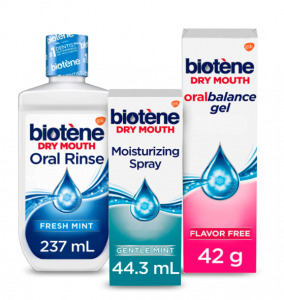Hi! I’m Ashley, your favorite dental hygienist, and I am about to spill the tea on all the secrets to keep those pearly whites healthy. I am extremely enthusiastic about overall health and especially oral health. I chose dental hygiene as a profession because I believe that smiling is one of the most important factors of a healthy, happy life. I wanted to help others feel confident when they smile.
Did you know that it actually takes more muscles to frown than it does to smile?
I have been a dental hygienist at a private practice since 2009. While working in private practice I realized I have a true passion for holistic, whole-body dentistry. Healthy mouth, healthy body. Some of the most common diseases are first manifested in the oral cavity, such as HIV, autoimmune disorders and many nutritional deficiencies.
Inflammation in the mouth can indicate inflammation in the body. Did you know that gingivitis and periodontal disease are both caused by inflammation? Limiting inflammation in the mouth is my job and I take that very seriously. Here’s how to keep inflammation at bay and keep those chompers for as long as you can!

Seeking regular dental care is extremely important to effectively remove the accumulation of plaque and tartar to prevent gingivitis and periodontal disease from progressing. Always book your appointments ahead of time and listen to the recommendations the dental hygienist gives you. The dental hygienist will recommend what is best based on your specific needs.
View this post on Instagram
In order to reduce inflammation, we need to brush and floss at least twice a day. Have you noticed that skin care tools have been all the rage? Well, just like skin care leads to cleaner skin, I recommend a Sonicare electric toothbrush for cleaner teeth. Sonic technology removes up to four times more plaque than regular tooth brushing. I always recommend brushing for at least two and a half minutes.
Delay brushing for at least an hour after consuming acidic foods or beverages — for example, anything sugary or lemon water. Because acid softens the tooth surface, brushing will cause more enamel loss. Instead, rinse your mouth with water and chew hard cheese or sugarless gum to stimulate saliva flow, which helps wash away and neutralize acids.
FLOSS FLOSS FLOSS. I keep floss everywhere. I recommend Crest Pro-Health Deep Clean Floss. I honestly can’t live without it, nor can I work without it. I love this floss. I encourage flossing after all meals and snacks. If a loved one has poor dexterity I suggest floss picks. You could also floss your partner’s teeth for them if they have a difficult time.
An extra tool to add to your oral care routine is a tongue scraper. The tongue harbors bacteria that contribute to halitosis and cavities. Halitosis is a fancy name for bad breath. Ewww, nobody wants that! Buy a tongue scraper; scrape your tongue from back to front. Your tongue should be pink and healthy. There are different types of tongue scrapers on Amazon. I recommend a silicone or stainless steel scraper.
PRO TIP: If you get a common cold, COVID, or other sickness, change your toothbrush head or replace your manual toothbrush and other oral care devices.
If you are currently on a prescription medication, you probably experience dry mouth. Most pharmaceuticals have this common side effect. With a high population on one or more pharmaceutical drugs, this is a common concern among my clients. Dry mouth can make chewing and swallowing more difficult. I always recommend Biotene to help with the discomfort. Biotene has a wide range of products including toothpaste, mouth rinse and saliva substitutes.
As a hygienist I am obliged to recommend quitting bad habits such as smoking. If you’re a smoker, QUIT. Talk to your family doctor about a prescription medication if needed. Your hygienist can help you create a plan to quit; they’ll be well-versed on all of the nicotine replacement therapies on the market and will recommend the best one for you.
There is a strong link between nutrition and oral health. Our grocery stores are filled with foods that can wreak havoc on our oral health. Limit sugary snacks, chewy sticky candy, carbonated soft drinks, fruit juices, and sports energy drinks. Acids that cause dental erosion are found in many foods and drinks such as fruit juices, iced tea, pickles, salad dressings, and wine. When adapting to a healthier lifestyle, I always encourage adding foods instead of the mindset of removing what you “can’t have.” There are so many healthy snacks to choose from: celery and nut butter, apples and cheese, apple and nut butter, plain yogurt, hard cheese, hard boiled eggs, or vegetables and hummus.
View this post on Instagram
Getting the proper amount of vitamins and minerals, fats and proteins is essential for the growth and regeneration of normal tissues and building the body’s immune system. Carbohydrates, fats and protein supply the energy supply the body needs for tissue maintenance and repair along with vitamins A, B, C, E, K and D which are essential for healing and speeding up recovery time. There are many important minerals and nutrients the body needs to stay healthy.
Calcium is essential for bone health, the teeth and jaws are made mostly of calcium. Milk and dairy products, beans, broccoli, nuts and oysters are good sources of calcium.
A deficiency in iron can lead to inflammation. Iron deficiency is shown orally by tongue inflammation and mouth sores. Good sources of iron are red meat, poultry, fish, fortified cereals and nuts.
A lack of vitamin B3 can cause bad breath and canker sources. To increase vitamin B3, eat more chicken and fish. Mouth sores can develop when low in B12 and B3 (riboflavin). Sources of B12 include red meat, chicken liver, pork and fish and dairy products. Sources for B2 include pasta, spinach and almonds.
Vitamin C helps produce collagen, the connective tissue that holds bones together. A deficiency may lead to bleeding gums and loose teeth. Eating more sweet potatoes, citrus fruits and raw red peppers will help sustain Vitamin C levels.
Vitamin D enables the body to absorb calcium, which helps build strong bones and teeth. Getting outdoors and enjoying the sunshine, while eating a hard boiled egg and tall glass of milk should do the trick.
Vitamin K helps synthesize three proteins in bone needed for strength. Vitamin K also plays a role in blood clotting. Enjoying a large leafy green salad with a side of broccoli and kale will help ensure you’re getting enough vitamin K.
Phosphorus is needed for healthy bones and teeth. Phosphorus can be naturally found in protein-rich foods such as meats, poultry, fish, nuts, beans and dairy products.
Zinc promotes strong bones, and helps develop and maintain collagen. Zinc can be found in seafood, meat and liver.
Magnesium is important for bone formation and can be found in green vegetables, legumes and nuts.
Potassium helps promote good mineral density and reduces calcium loss. Increasing potassium during breastfeeding is recommended. Eating the rainbow of fruits and vegetables can ensure you are getting optimal vitamins and minerals to support an overall healthy body!

How do you take care of your teeth? Do you have any of Ashley’s dental health products? Tell us in the comments!

About Ashley Croft
Ashley Croft is a dental hygienist from the Toronto area of Canada. She’s a mom to son Max and a wife to her husband John. Ashley is passionate about health and holistic medicine.
For More Info On Health & Wellness, Read These:


